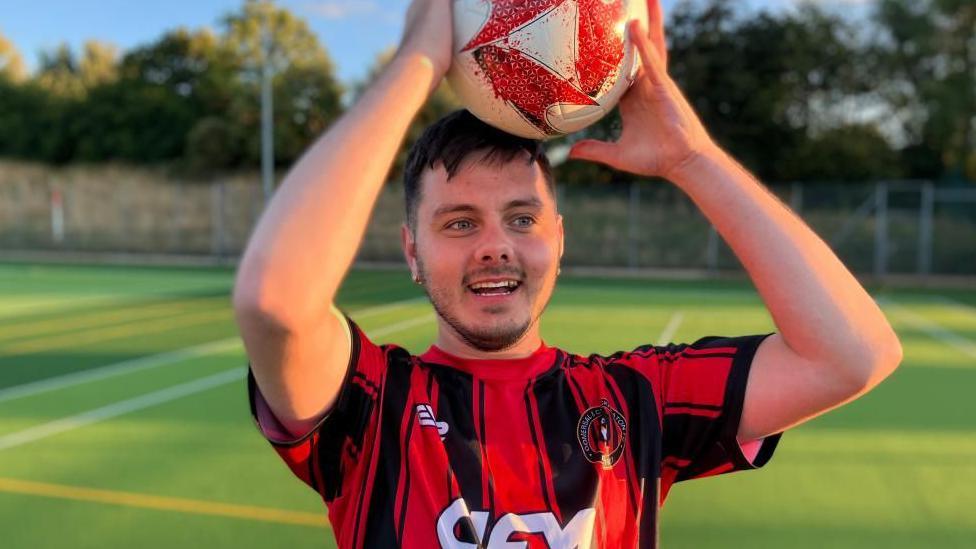'Our disability sport club is one big family - it's grown and grown'
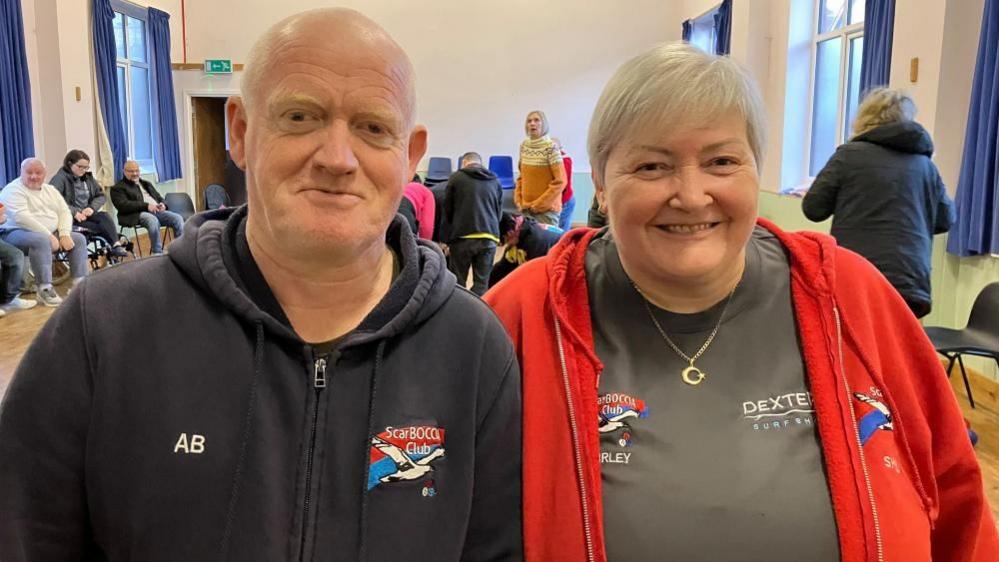
Alan Banks and Shirley Carradice of ScarBoccia said the sport is inclusive to all
- Published
The sound of friendly competition can be heard as far away as the church car park; a chorus of voices mingling with the strike of leather on wooden floorboards.
The only time the hall falls quiet is when a player rolls their ball towards the jack in the centre of the room; success can then be judged on the groans or cheers it elicits.
This is boccia, a disability sport similar to bowls, which tests a player's precision and muscle control while they rack up points for their team.
At Ebenezer Baptist Church in Scarborough, games are played for the social benefits, but competition can still be fierce.
Alan Banks, chairman of ScarBoccia, stands in the centre of the room with a plastic bag full of sweet treats as an incentive for the winners.
There's a range of different disabilities represented at the session this evening, and the team prides itself on being inclusive to all, he explains.
"Anyone can play whether they have a disability or not, and we have a whole range of people playing," he says.
"The stimulant and the exercise they get from it won't seem a lot but they don't realise the muscles in their arms they're using when they're doing it."
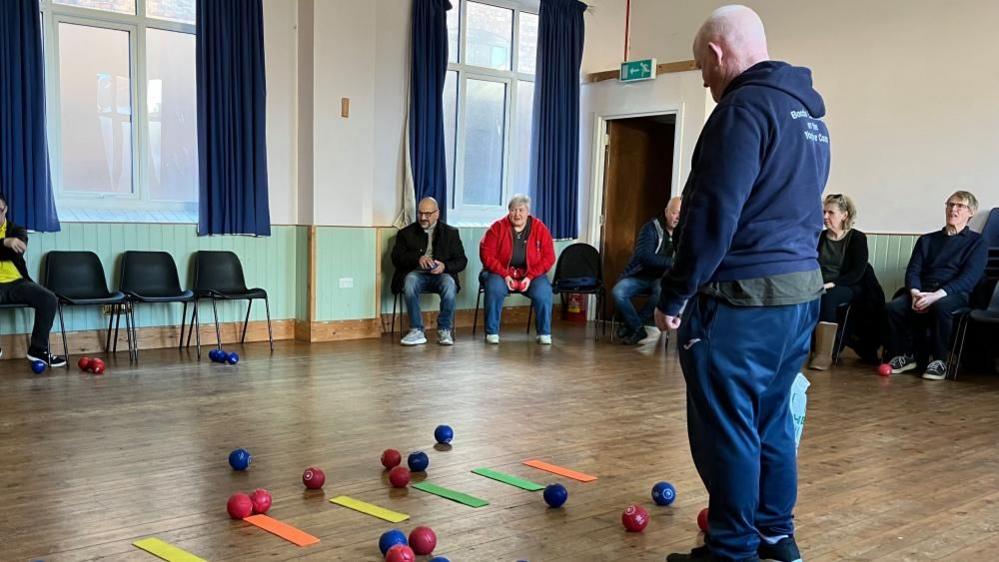
Alan Banks sets up a training exercise for ScarBoccia players
Boccia became a Paralympic sport in 1984 and has around 554 internationally ranked players today, according to its governing body World Boccia.
Alan is registered blind, and is a player in the BC7 category for Boccia England.
He joined ScarBoccia more than a decade ago when membership was only around 25 people, and has seen how the group has grown in popularity, reaching 450 players.
Sessions are now offered five days a week, across Scarborough, Cayton, Norton and Whitby.
"It's become one big family, people come every week religiously to see friends and just enjoy the game," he says.
The size increase isn't without pitfalls, Alan adds, including the cost of room hire and the purchase of equipment, as well as supporting volunteers through training.
A set of boccia balls can set the club back around £280, and specialist ramps for players with restricted movement can start at upwards of £1,000.
The club recently secured a grant from Sport England on the condition it matches the funding, so has set up an appeal to raise the money by December.
Support worker Leslie has accompanied her client Stuart to sessions for two years, although her own boccia technique hasn't improved much, she jokes.
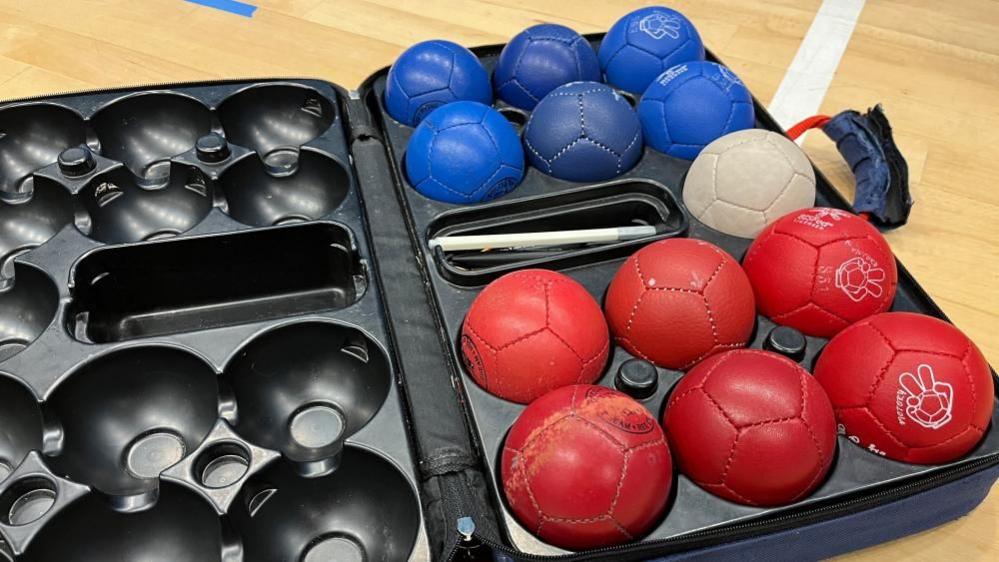
Equipment for boccia can be costly
"The thing that stands out for Stuart is that he loves it, he comes every week," she says.
"It that kind of fun activity that includes everybody, whatever level, they're all able to come here, they're all able to win here and have a really good laugh."
Shirley Carradice, co-coordinator at ScarBoccia, says she hopes they can continue growing the sport and reach more people, especially those in isolated communities.
"It's just me and Alan at the moment, and it's trying to fit everybody in," she says.
"But if we had that person we could train up, who would feel confident doing nursing homes and things like that, we could go a lot further in the community."
For Shirley's partner Murat, today is the first time he's joined in with a session.
"As a person with a disability myself, I found it very emotional," he says, adding that groups like ScarBoccia weren't accessible to him growing up.
"Taking part, I understand why it makes them feel the way they do, and why they feel so passionately about it.
"If I won the lottery, I'd fund it myself to keep it going because I know it means a lot."
Get in touch
Tell us which stories we should cover in Yorkshire
Listen to highlights from North Yorkshire on BBC Sounds, catch up with the latest episode of Look North.
Related topics
- Published3 July
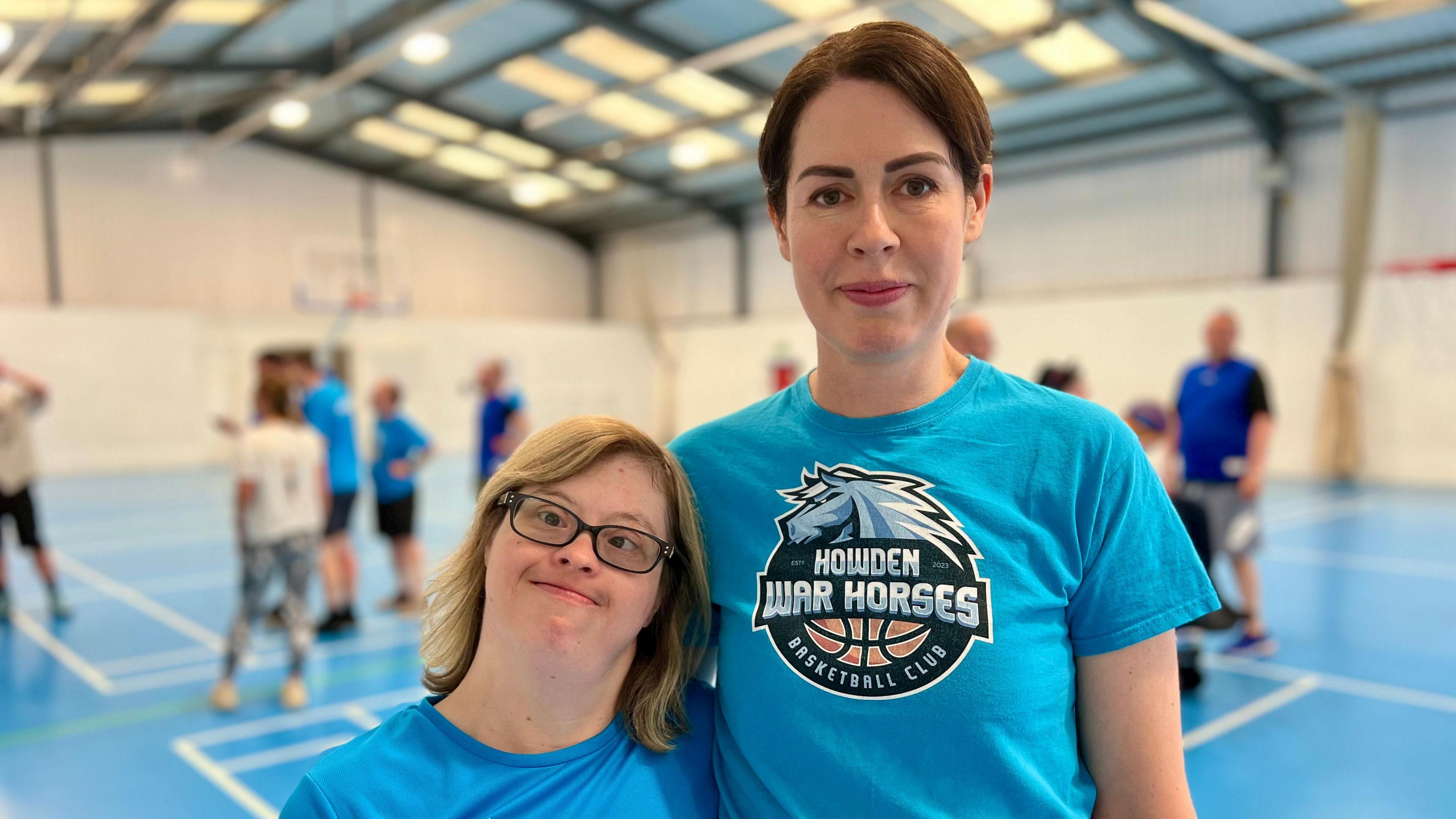
- Published4 May
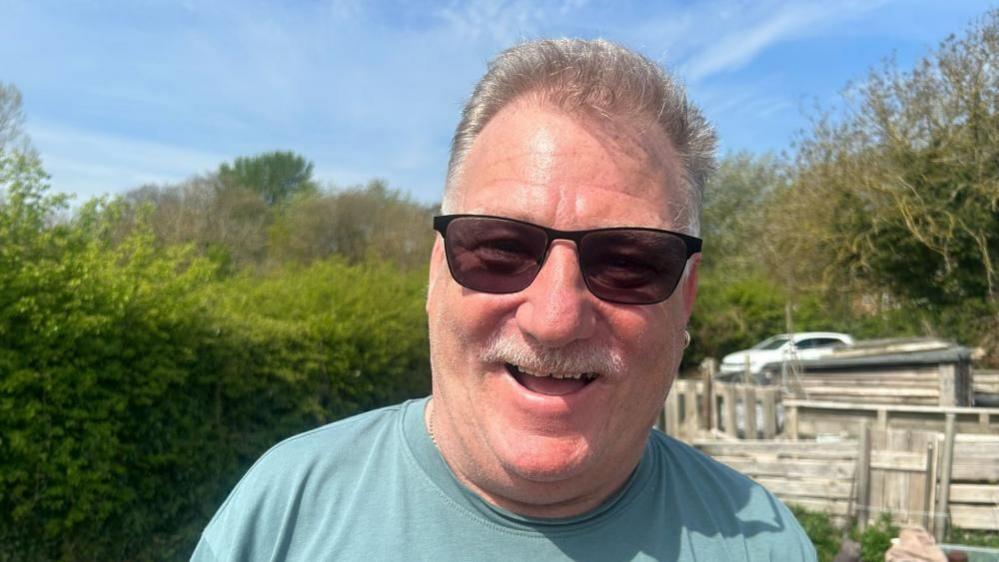
- Published22 September
